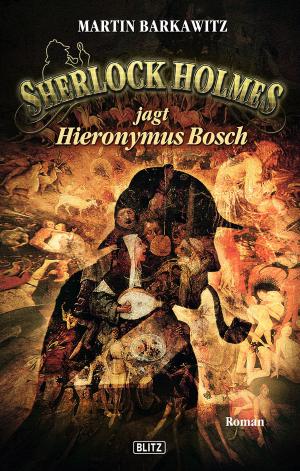The Shakespearean Myth
William Shakespeare and Circumstantial Evidence
Biography & Memoir, Artists, Architects & Photographers, Nonfiction, Art & Architecture, Historical| Author: | Appleton Morgan | ISBN: | 1230000290660 |
| Publisher: | Cincinnati, Robert Clarke & Co | Publication: | January 9, 2015 |
| Imprint: | Language: | English |
| Author: | Appleton Morgan |
| ISBN: | 1230000290660 |
| Publisher: | Cincinnati, Robert Clarke & Co |
| Publication: | January 9, 2015 |
| Imprint: | |
| Language: | English |
Example in this ebook
Mguizot, in his History of England, states the Shakespearean problem in a few words, when he says: "Let us finally mention the great comedian, the great tragedian, the great philosopher, the great poet, who was in his lifetime butcher's apprentice, poacher, actor, theatrical manager, and whose name is William Shakespeare. In twenty years, amid the duties of his profession, the care of mounting his pieces, of instructing his actors, he composed the thirty-two tragedies and comedies, in verse and prose, rich with an incomparable knowledge of human nature, and an unequaled power of imagination, terrible and comic by turns, profound and delicate, homely and touching, responding to every emotion of the soul, divining all that was beyond the range of his experience and for ever remaining the treasure of the age—all this being accomplished, Shakespeare left the theater and the busy world, at the age of forty-five, to return to Stratford-on-Avon, where lived peacefully in the most modest retirement, writing nothing and never returning to the stage—ignored and unknown if his works had not forever marked out his place in the world—a strange example of an imagination so powerful, suddenly ceasing to produce, and closing, once for all, the door to the efforts of genius."
But M. Guizot is very far from suggesting any prima facie inconsistency in this statement as it stands.
Since every man reads the Shakespearean pages for himself and between the lines, much of what we are expected to accept as Shakespearean criticism must fail of universal appreciation and sympathy. But none who read the English tongue can well be unconcerned with the question as to who wrote those pages; and it would be affectation to deny that the intense realism of our day is offering some startling contributions to the solution of that question.
For instance, the gentlemen of the "New Shakespeare Society" (whom Mr. Swinburne rather mercilessly burlesques in his recent "Studies of Shakespeare") submit these dramas to a quantitative analysis; and, by deliberately counting the "male," "female," "weak," and "stopped" endings, and the Alexandrines and catalectics (just as a mineralogist counts the degrees and minutes in the angles of his crystals), insist on their ability to pronounce didatically and infallibly what was written by William Shakespeare, and at what age; what was composed by Dekker, Fletcher, Marlowe, or anybody else; what was originally theirs, touched up by William Shakespeare or vice versa, etc. It is curious to observe how this process invariably gives all the admirable sentiments to William Shakespeare, and all the questionable ones to somebody else; but at least these New Shakespearean gentlemen have surrendered somewhat of the "cast-iron" theory of our childhood—that every page, line, and word of the immortal Shakespearean Drama was written by William Shakespeare demi-god, and by none other—perhaps, even opened a path through which the unbelievers may become, in due time, orthodox.
There are still, however, a great many persons who are disposed to wave the whole question behind them, much as Mr. Podsnap disposed of the social evil or a famine in India. It is only a "Historic Doubt," they say, and "Historic Doubts" are not rare, are mainly contrived to exhibit syllogistic ingenuity in the teeth of facts, etc., etc. The French, they say, have the same set of problems about Molière. Was he a lawyer? was he a doctor? etc.—and they all find their material in internal evidence—e. g., an accurate handling of the technique of this or that profession or science: parallelism, practical coincidence, or something of that sort.
To be continue in this ebook
Example in this ebook
Mguizot, in his History of England, states the Shakespearean problem in a few words, when he says: "Let us finally mention the great comedian, the great tragedian, the great philosopher, the great poet, who was in his lifetime butcher's apprentice, poacher, actor, theatrical manager, and whose name is William Shakespeare. In twenty years, amid the duties of his profession, the care of mounting his pieces, of instructing his actors, he composed the thirty-two tragedies and comedies, in verse and prose, rich with an incomparable knowledge of human nature, and an unequaled power of imagination, terrible and comic by turns, profound and delicate, homely and touching, responding to every emotion of the soul, divining all that was beyond the range of his experience and for ever remaining the treasure of the age—all this being accomplished, Shakespeare left the theater and the busy world, at the age of forty-five, to return to Stratford-on-Avon, where lived peacefully in the most modest retirement, writing nothing and never returning to the stage—ignored and unknown if his works had not forever marked out his place in the world—a strange example of an imagination so powerful, suddenly ceasing to produce, and closing, once for all, the door to the efforts of genius."
But M. Guizot is very far from suggesting any prima facie inconsistency in this statement as it stands.
Since every man reads the Shakespearean pages for himself and between the lines, much of what we are expected to accept as Shakespearean criticism must fail of universal appreciation and sympathy. But none who read the English tongue can well be unconcerned with the question as to who wrote those pages; and it would be affectation to deny that the intense realism of our day is offering some startling contributions to the solution of that question.
For instance, the gentlemen of the "New Shakespeare Society" (whom Mr. Swinburne rather mercilessly burlesques in his recent "Studies of Shakespeare") submit these dramas to a quantitative analysis; and, by deliberately counting the "male," "female," "weak," and "stopped" endings, and the Alexandrines and catalectics (just as a mineralogist counts the degrees and minutes in the angles of his crystals), insist on their ability to pronounce didatically and infallibly what was written by William Shakespeare, and at what age; what was composed by Dekker, Fletcher, Marlowe, or anybody else; what was originally theirs, touched up by William Shakespeare or vice versa, etc. It is curious to observe how this process invariably gives all the admirable sentiments to William Shakespeare, and all the questionable ones to somebody else; but at least these New Shakespearean gentlemen have surrendered somewhat of the "cast-iron" theory of our childhood—that every page, line, and word of the immortal Shakespearean Drama was written by William Shakespeare demi-god, and by none other—perhaps, even opened a path through which the unbelievers may become, in due time, orthodox.
There are still, however, a great many persons who are disposed to wave the whole question behind them, much as Mr. Podsnap disposed of the social evil or a famine in India. It is only a "Historic Doubt," they say, and "Historic Doubts" are not rare, are mainly contrived to exhibit syllogistic ingenuity in the teeth of facts, etc., etc. The French, they say, have the same set of problems about Molière. Was he a lawyer? was he a doctor? etc.—and they all find their material in internal evidence—e. g., an accurate handling of the technique of this or that profession or science: parallelism, practical coincidence, or something of that sort.
To be continue in this ebook















